The month in pictures: April
Tajikistan’s mountains from the clouds, family time in Madagascar, and carbon capturing cacti in Syria: explore AKF’s work around the world this month

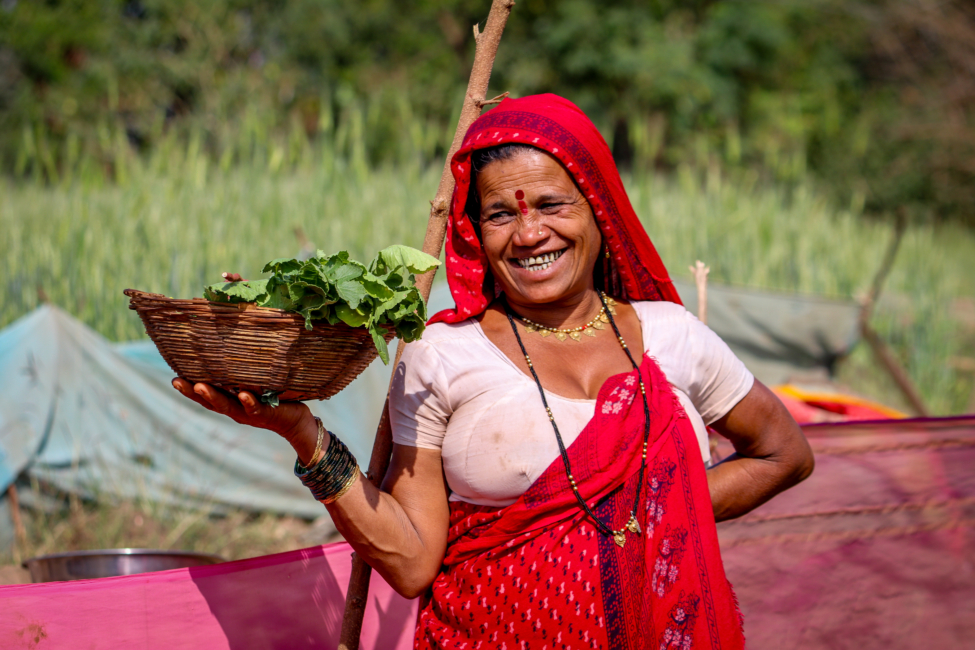
A farmer proudly holds a basket of fresh vegetables aloft, grown in her kitchen garden. Using kitchen wastewater, she grows fruits and vegetables her back garden – an initiative supported by the Aga Khan Rural Support Programme in India. These kitchen gardens are especially beneficial for rural communities with limited land holdings, ensuring a steady supply of nutritious produce from their own home.
Location: Maharashtra, India / Photographer: Aarsh Mehta
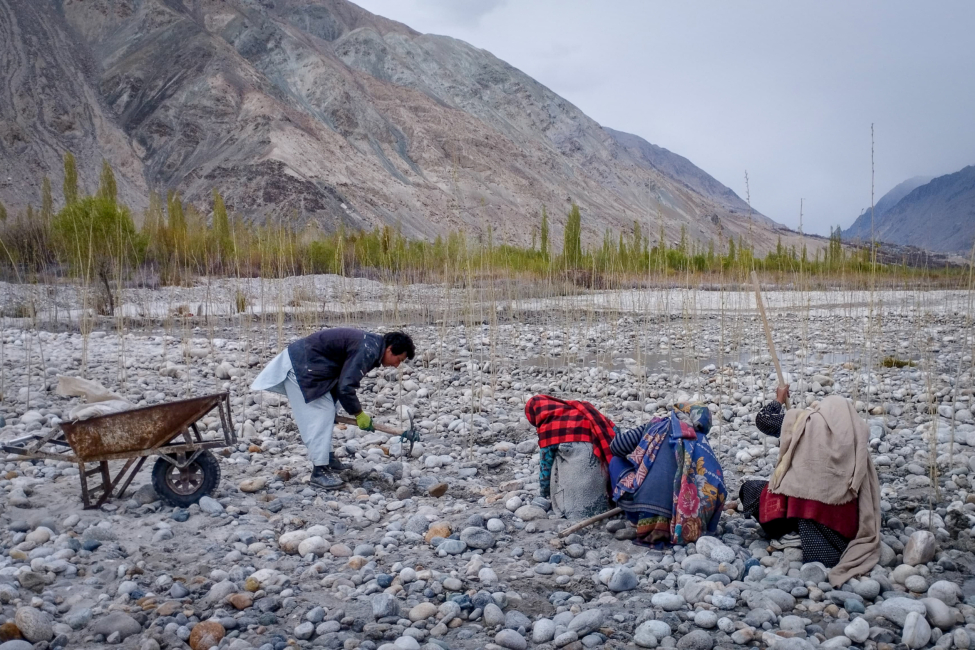
Despite contributing to less than 1% of global carbon emissions, Pakistan is one of the most climate-affected countries in the world. In Baltistan, tree planting initiatives are vital to mitigating the impacts of ecological threats like deforestation and soil erosion. Together with the Aga Khan Rural Support Programme, AKF is supporting community-led tree planting campaigns, planting hundreds of thousands of trees every year. Last year, communities planted 422,994 in Baltistan, fostering environmental stewardship, social cohesion, and sustainable practices, as well as improving air quality and biodiversity.
Location: Baltistan, Pakistan / Photographer: Rahat Ali
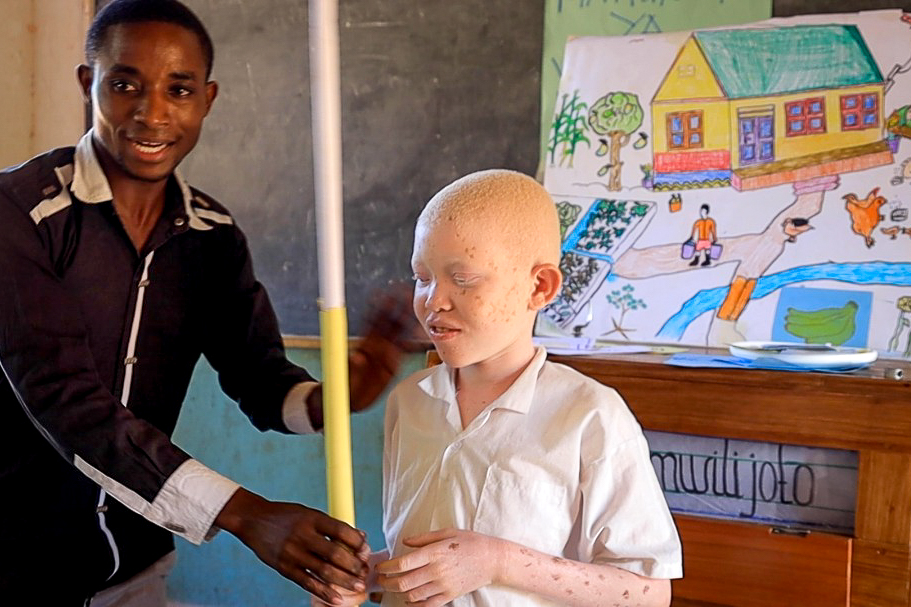
A teacher guides his student through the wonders of literacy with the help of a handmade learning machine. By rolling the blue belt – seen behind the student – and reading aloud, learners engage with numbers, letters, and pictures, fostering skills and confidence in a playful, interactive way. The learning machine is a classroom innovation developed by teachers through Schools2030, AKF’s flagship education programme.
Location: Lindi, Tanzania / Photographer: JUU Africa
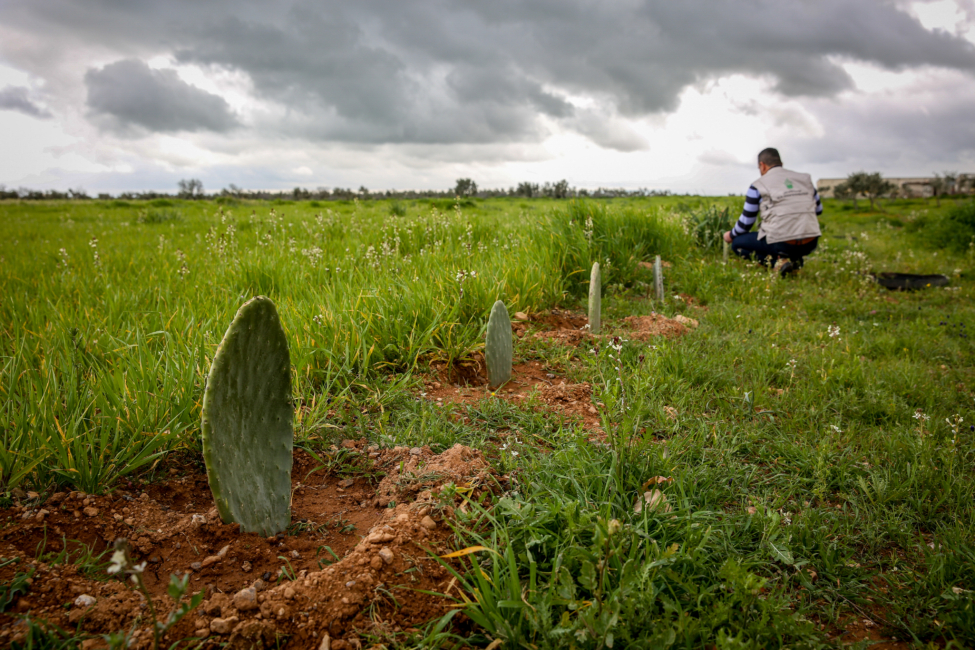
In Syria, AKF has planted 23,300 cacti across seven villages. Cacti can bring multiple benefits to both people and planet, improving air quality and absorbing carbon dioxide from the atmosphere. Cactus fruits – also known as ‘prickly pears’ – contribute to a nutritious diet and can be sold by farmers to earn additional income. Finally, cactus cladodes are considered nutritious fodder for livestock, meaning that farmers can be more self-sufficient and avoid paying for more expensive sources of fodder.
Location: Salamieh, Syria / Photographer: Ali Shaheen

In Madagascar, this farming family spending more quality time together after adopting the Zanatany rice cultivation technique. Traditional rice farming in Madagascar is labour-intensive, particularly for women. The technique, co-developed by AKF and smallholder farmers emphasises efficiency, enhances productivity, reduces costs and labour, and ultimately increases rice yields.
Location: Avironimamo, Madagascar / Photographer: Humberto Caldas
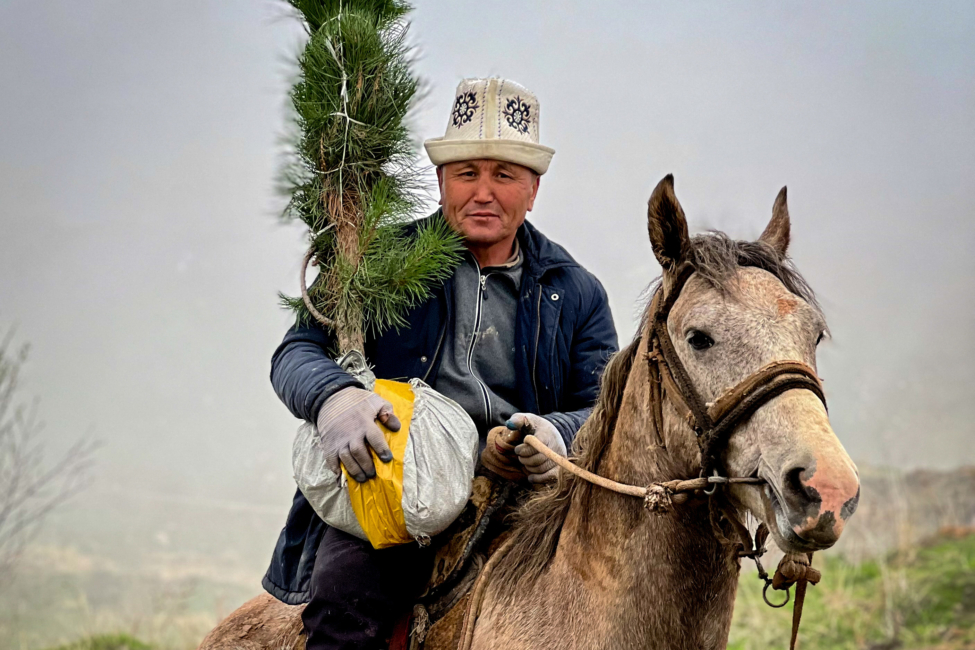
Akkulov has been helping his community recultivate the land surrounding his village after a landslide in 2017. Together with his brother, Abdujapar, who is an ecology professor, he has been leading a tree planting campaign across 100 hectares of degraded land. Akkulov transports the trees on horseback to cover such a large area.
Location: Osh, Kyrgyz Republic / Photographer: Ulukbek Adanbaev

From the clouds: the Pamir Mountain range, taken 3,000 meters above sea level. The Pamir Mountains are a range of mountains between Central Asia and South Asia, and much of the range lies in the Gorno-Badakhshan Province (GBAO) of Tajikistan. With peaks exceeding 7,500 metres, they are among the world’s highest mountains and are often referred to as ‘the roof of the world’.
Location: GBAO, Tajikistan / Photographer: Muhayo Khosabekova
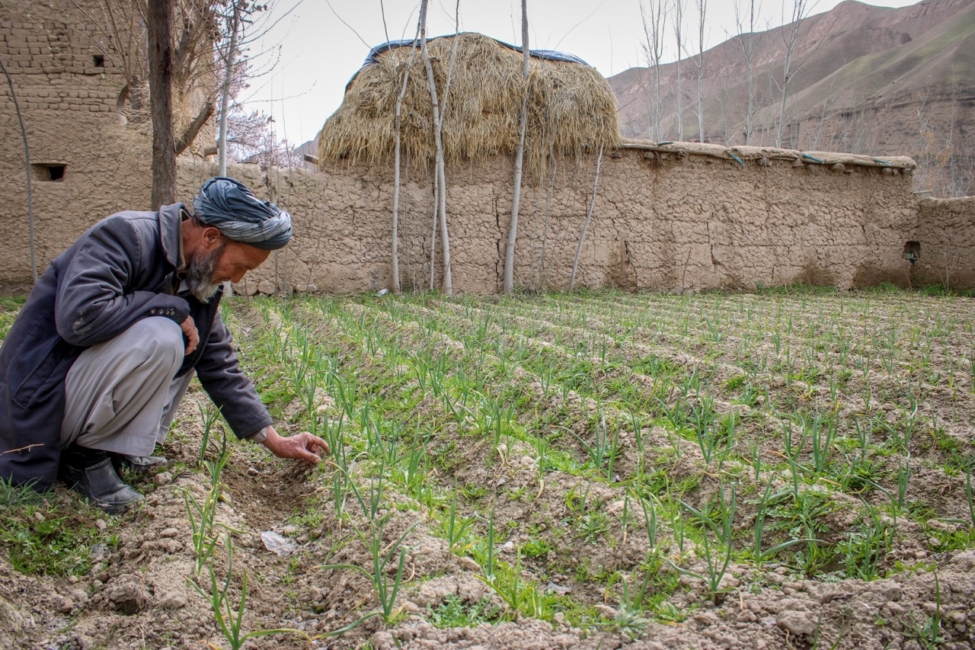
Tending to his kitchen garden, this farmer from northern Afghanistan’s Takhar province is growing crops including garlic (seen here), red beans and onions. All these crops are considered high-income and will help him to earn more money to support his family, as well as for their own consumption. This initiative is part of an agricultural enhancement project led by AKF, called the Sustainable and Inclusive Transformation of Agrarian Economies in Rural Afghanistan (SITARA).
Location: Takhar province, Afghanistan / Photographer: Sayed Aga
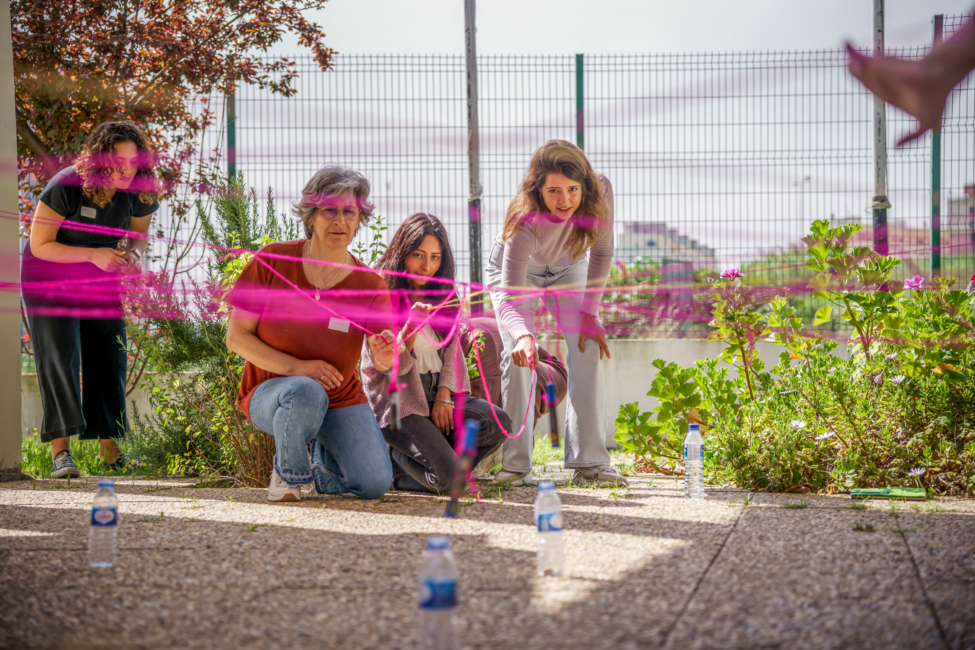
In Marvila, an eastern quarter of Lisbon, AKF hosted a workshop community innovation project methodology. More than 40 participants joined the workshop – a dynamic and participatory event that provided a space for new ideas and experiences. Participants appreciated the learning, inspiration, cooperation, and knowledge they gained from the workshop.
Location: Lisbon, Portugal / Photographer: Rui Gouveia
/9
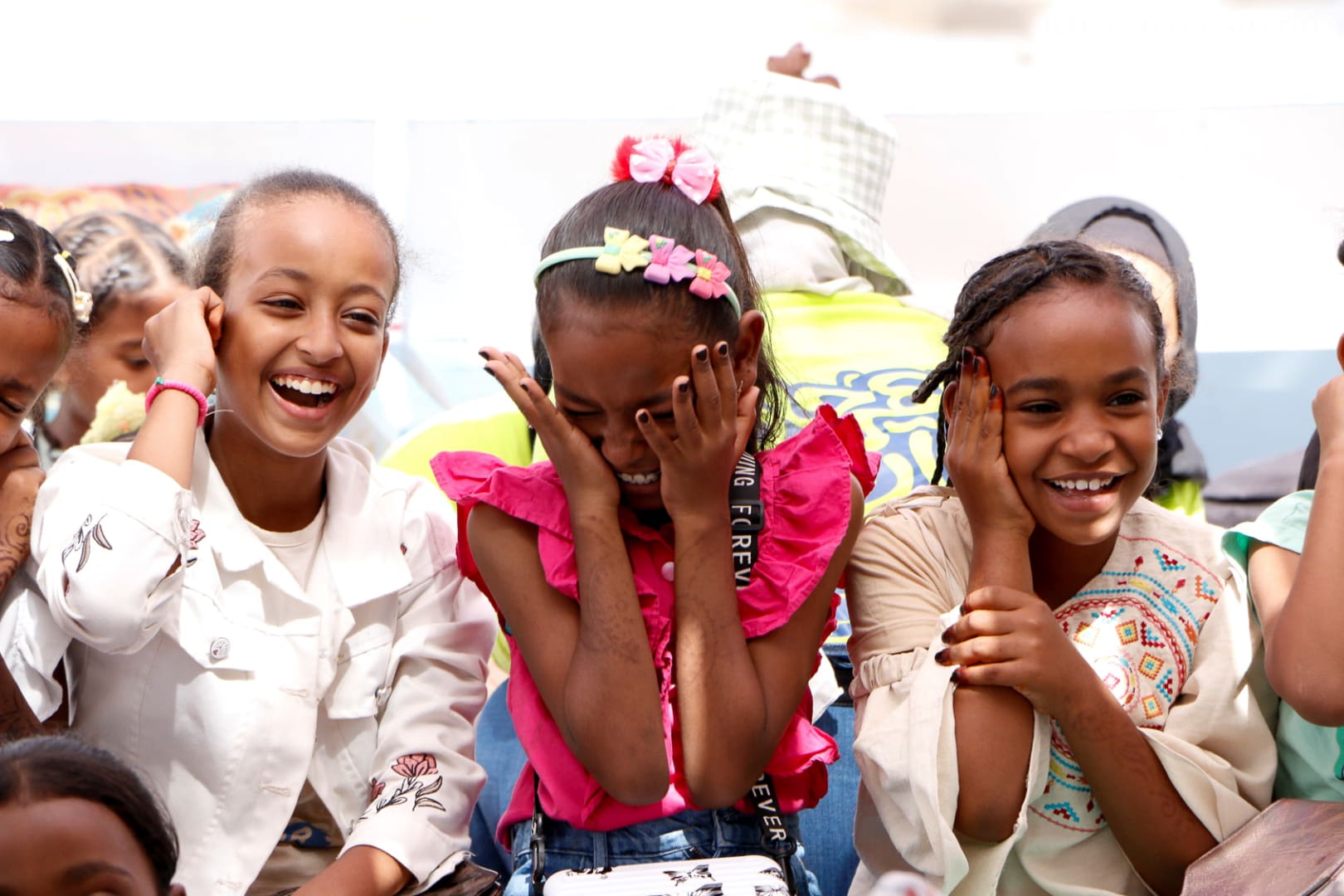
Support our work Your donations are helping us build a future where we all thrive together.